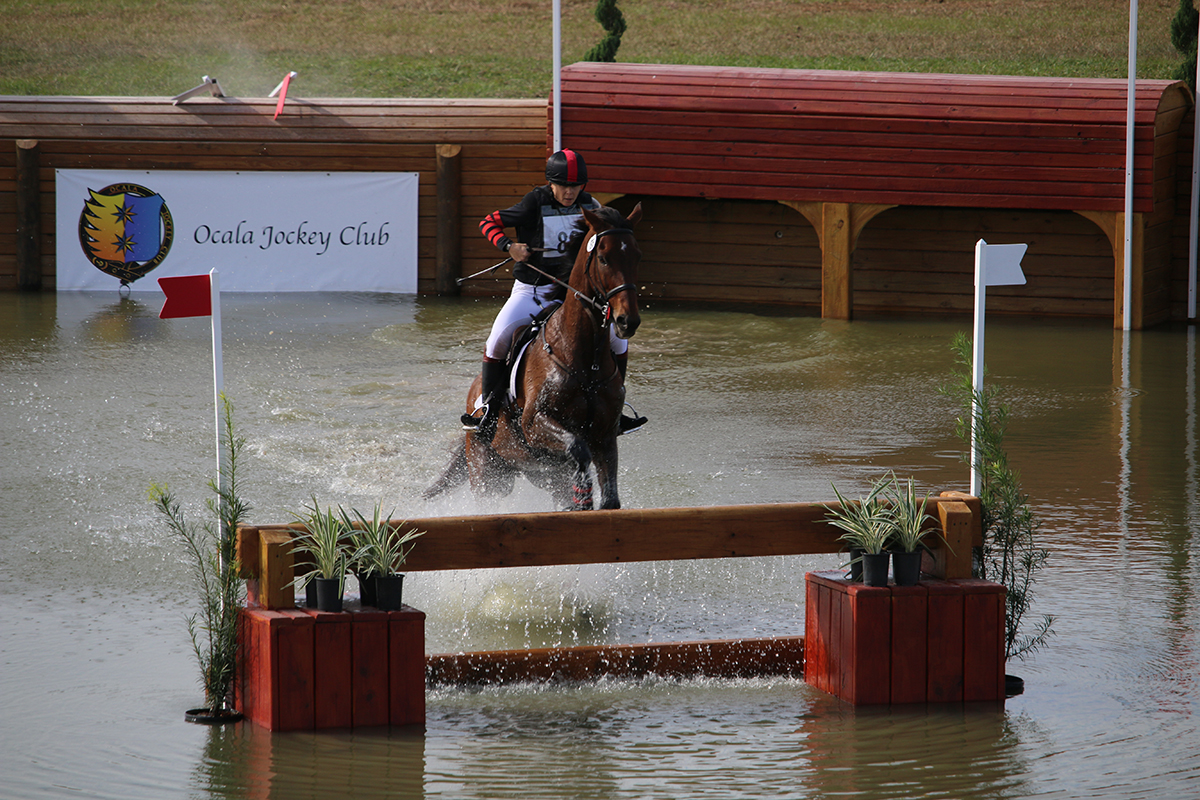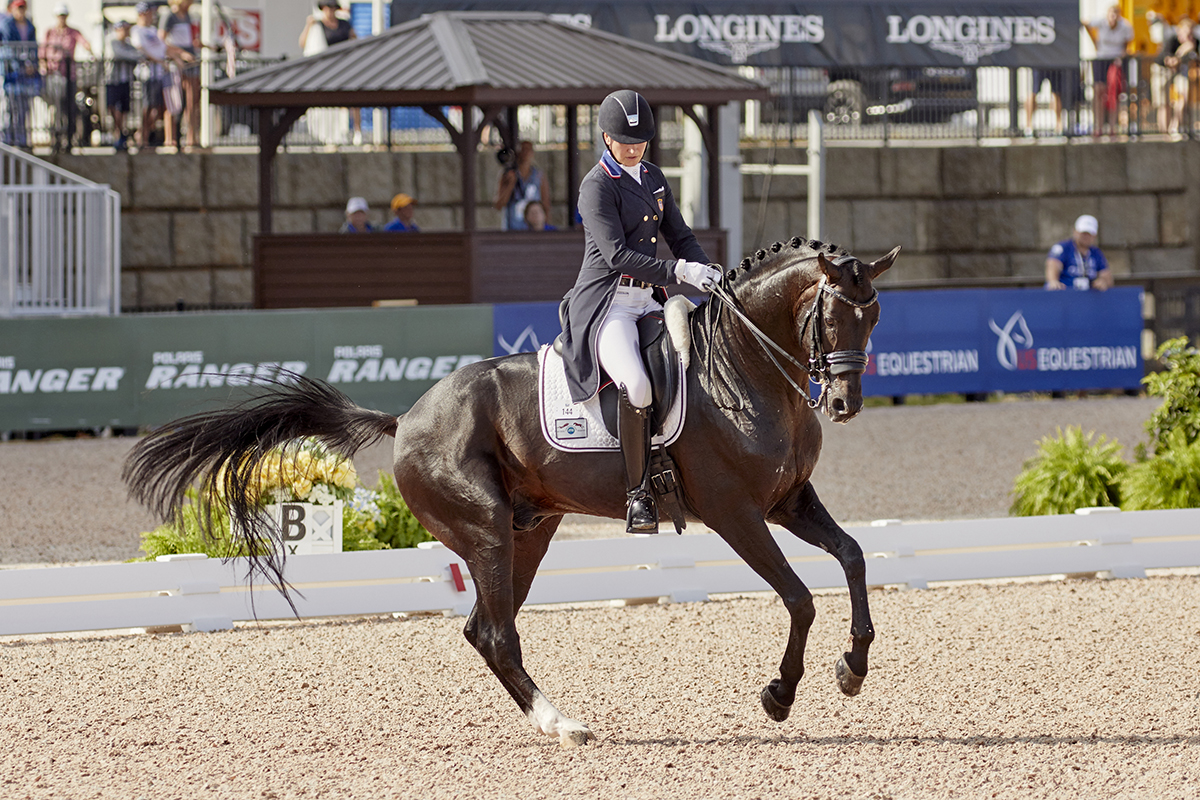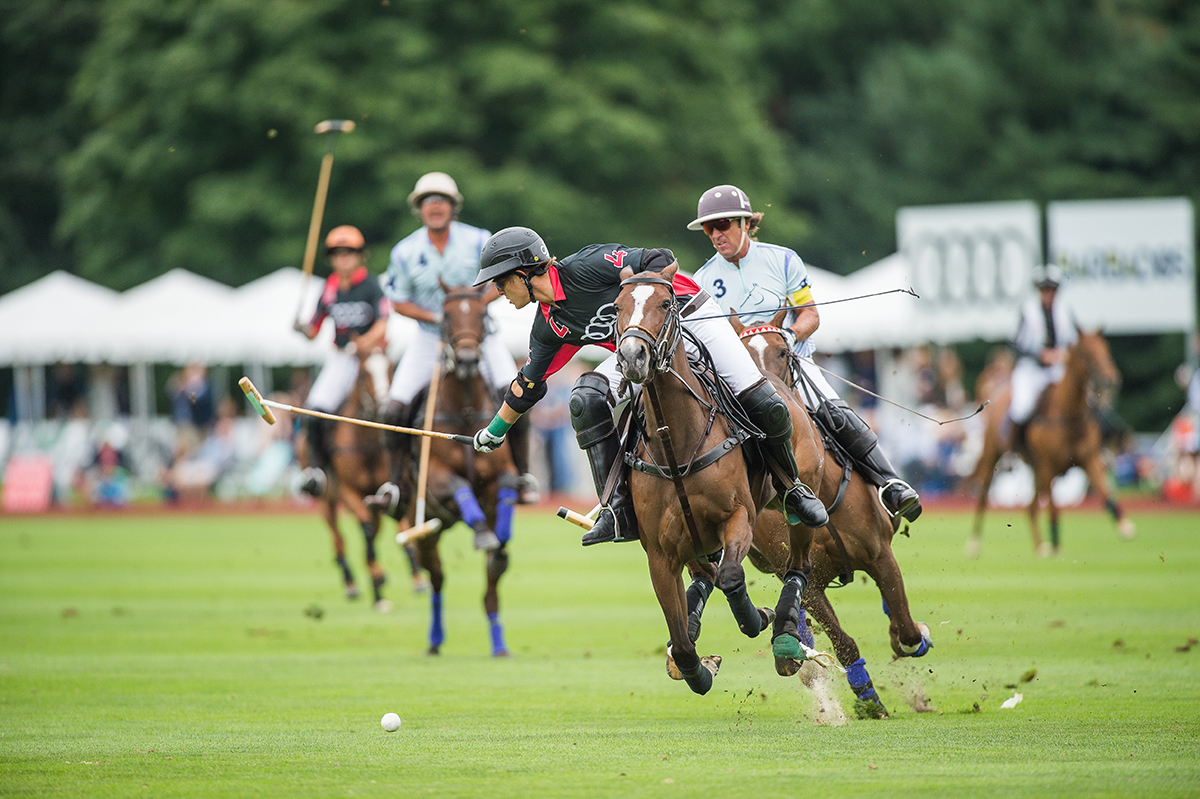

“Horse sport goes on, rain or shine,” says Michael Stone, president of the FEI World Equestrian Games Tryon 2018 organizing committee. “We’re used to running into bad weather, but this was beyond anything we imagined. We never doubted the Games would go on, but we were very nervous. We made it happen, and that’s the important thing.”
At stake was an estimated $400 million in economic impact generated by an anticipated 500,000 visitors. Officials say they sold tickets to spectators from all 50 states plus 54 countries, but total attendance topped out at just about 200,000, thanks to the nasty weather. The 723 competitors (and 727 horses) represented 68 countries in eight disciplines: jumping, dressage and para-equestrian dressage, eventing, driving, endurance, vaulting and reining.
Mill Creek was only the second U.S. city to host the World Equestrian Games since the inaugural event in 1990 in Sweden. When the Kentucky Horse Park in Lexington, Kentucky, hosted the Games in 2010, 800 athletes and their horses represented 57 countries.
To prepare for the Games, the Tryon International Equestrian Center, which is part of the Tryon Resort and hosts more than 40 weeks of international and national equestrian competition throughout the year, added a small hotel, cabins and other lodging options, as well as a new stadium (with more new buildings on the way).

Equestrian is big business, as sports tourism professionals around the United States can attest. The East Coast, especially, boasts some of the finest equine sports facilities in the world, including Tryon, Greenwich Polo Club in Connecticut and the Florida Horse Park.
‘The Horse Capital of the World’
In 2007, Ocala, Florida, (along with its Marion County surroundings) was dubbed the “Horse Capital of the World” after a national horse council survey indicated there were more horses and ponies — not just thoroughbreds — in the county than in any other U.S. city. The phrase is currently trademarked by the Florida Thoroughbred Breeders and Owners Association, and the county continues to add major equestrian events, venues and farms on an annual basis, according to Corry Locke, sports marketing specialist for the Ocala/Marion County Visitors and Convention Bureau.
In 2015, an economic impact study commissioned by the Ocala/Marion County Chamber & Economic Partnership and conducted by the Sport Marketing Research Institute found that the region’s equine industry contributed to a $2.62 billion economic impact.
The Florida Horse Park, situated on 500 acres in the heart of Central Florida, is a year-round facility that is fast becoming the centerpiece of Florida’s equestrian lifestyle community, Locke says. The park offers international caliber competition courses and a schedule of world-class events attracting top competitors locally, nationally and globally. It was named an official training site for the United States Equestrian Team in 2006 and now hosts Olympic-level equine sports competitions that attract thousands of spectators.

Ocala’s Post Time Farm, a 450-acre property operated by the HITS special events management company headquartered in Saugerties, New York, includes 27 permanent barns, 540 permanent stalls and a state-of-the-art competition ring. It is one of four locations worldwide to host the FEI Nations Cup, during which international champions from eight countries competed for more than $450,000 in prizes. “Unfortunately, the Nations Cup is on a bid process, and the final awarded city has not been chosen yet,” Locke said in early October. “We hosted it from 2015 to 2018.”
Events on the horse capital of the world’s schedule for early 2019 include the HITS Ocala Winter Circuit in January and Live Oak International’s combined driving and show jumping in March.
As if all that is not enough, a new 300-acre facility, the World Equestrian Center in Ocala, is scheduled to open in 2019 and will feature four climate-controlled, multi-purpose indoor arenas with open floor space, an open-air stadium with lights and grandstand seating, and 15 outdoor arenas with stabling for more than 1,500 horses.

Nestled in the backcountry of Connecticut sits the Greenwich Polo Club, home to three fields that host nine public matches per year, in addition to four major tournaments that last multiple weeks. The season runs June through September, and competition is open to any polo players who put together a tournament-caliber team, according to Mariana Castro, the club’s director of marketing and events.
Horses are stabled all over the region, she says, and players (who come from all over the world) stay near their horses in hotels or rented houses. One of the fields offers grandstand seating for about 700 spectators, with other seating in VIP tents and on the lawn. Field usage is rotated to keep each one in “pristine” condition, Castro says.
“It’s a very unique polo club, easily within the top 10, if not the top five, in the world,” she says, adding that admission for spectators begins at $40 per carload. “It’s the most affordable professional sport you’ll find.”
The club is home to the legendary White Birch polo team, one of the most successful in history, having won more high-goal polo tournaments than any other team over the course of the past 25 years, including the US Open Polo Championship in 2005. Some of the world’s best players have played at Greenwich Polo Club, too.
“The location, venue and level of polo we play is unmatched,” Castro says. “We don’t have to sell it.”
Fun bonus fact: Women’s polo is on the upswing, with several high school and college teams active in the Northeast.

In Chester County, Pennsylvania, tourism officials refer to equestrian season as their longest season, thanks in no small part to the Devon Horse Show and County Fair, the oldest and largest outdoor multi-breed competition in the United States. Internationally recognized and United States Equestrian Federation-rated 6* Jumpers/Premier Hunters, the facility recently added a second story that includes VIP, meeting and networking spaces.
Although the horse show runs from late May to early June, the facility is focused on providing year-round equestrian opportunities. “We have such a unique venue, and we can be that extra sales force it needs,” says Travis Geiser, sports and events sales manager for the Chester County Conference and Visitors Bureau. “We’re always looking for new events and ways to utilize the facility in different ways.”
Other Chester County equestrian venues include Plantation Field in Unionville (which is gaining popularity as the host of the annual International Horse Trials), The Willowdale Steeplechase in Kennett Square (the only course of its kind in the United States to feature a water jump), the Ludwig’s Corner Horse Show and Country Fair in Glenmoore (a long-running Labor Day weekend tradition highlighted by hunter and jumper competitions) and the Brandywine Polo Club (which sponsors weekly matches).
Aiken, South Carolina, is another East Coast destination with a rich equine legacy. “There is so much incredible history down here tied in with horses, going back to the late 1800s,” says Lisa Hall, coordinator of the Aiken Thoroughbred Racing Hall of Fame & Museum, which is part of the City of Aiken Parks, Recreation & Tourism Department, referring to wealthy northerners who built or rented homes during in the region during the winter. “A lot of those folks were horse people, and they started bringing their horses down with them. That’s how Aiken ended up flourishing. We like to call this place equestrian heaven.”
The Aiken Training Track, which includes a one-mile red-clay base, sandy-loam cushioned track and a 5/8-mile sand track built around one of the country’s oldest known polo fields, is home to the Aiken Trials. This time-honored tradition attracts up to 10,000 spectators, Hall says, and is the first leg of Aiken’s Triple Crown events, held annually for three consecutive Saturdays in March.
The second event in the city’s Triple Crown series is the Aiken Steeplechase. As many as 50,000 fans pack Aiken Horse Park for the daylong event; another steeple-chase is held there in October. Pacers and Polo at the Powerhouse Polo Field wraps up the Aiken Triple Crown. Hosted by the University of South Carolina Aiken, that event features teams from the area and raises money for the university’s athletics program (which includes equestrian and whose teams are nicknamed the Pacers).
Additionally, the Aiken Thoroughbred Racing Hall of Fame & Museum, was established in 1977 as a tribute to the famous flat racing and steeplechase thoroughbred horses that trained in the city over the years. Hall says 40 national champion thoroughbreds have trained in Aiken, and many equestrian professionals who’ve competed in Aiken have chosen to live in the city, too.

In Crete, Illinois, Balmoral Park is the destination for all things equestrian when the HITS series comes to town from the first week in May to the third week of September. And, says Debra Rogers, event coordinator and horse show secretary for Balmoral, that season-long show is just the beginning for the 200-acre property.
“I know next year, there is going to be a huge Arabian horse show coming in. I think it’s about 700 to 800 horses — that should last about a week,” Rogers says. “We also have a group of women who have rented the facility for dressage shows; this will be the third year in a row they’ll be back here.”
Located a little less than an hour from Chicago-O’Hare International Airport, the facility has 23 fully renovated barns, multiple rings, a 4,467-seat grandstand and VIP clubhouse with climate-controlled seating overlooking all competition rings. The facility additionally offers ample parking for events of all sizes. Hotels are a short drive away, and the town of Crete offers restaurants and coffee shops for those who want to explore it.
And, says Rogers, Balmoral Park holds a special place in equestrian enthusiasts’ hearts. “One of our riders got married here,” she notes. “The wedding was across the way at the golf course and the reception was in the grandstand area. There was room for all 300 people.” SDM
_____________________________________________________________________________________________________________
Looking for a Home for an Equestrian Event? Look Here
The T. Ed Garrison Arena at Clemson University is recognized as one of the premier multi-purpose livestock facilities in the Southeast. The Garrison Arena is South Carolina’s only full-service, public facility designed to promote the state’s billion-dollar livestock industry.
Operated by the Cooperative Extension Service in the division of Public Service and Agriculture, the Garrison Arena provides opportunities for shows, sales, exhibits and educational programs. Events draw thousands of visitors to Clemson and South Carolina, boosting tourism and contributing to economic development statewide.
Recent uprades to the Garrison Arena include the conversion of a warmup riding arena into an all-weather competition arena, the addition of 25 full-service RV sites and the renovation of the 10,000-square-foot, concrete-floor cattle sale complex into a fully conditioned space. These projects will not only improve the complex’s ability to host existing events, but also open it up to a wide variety of new events.

